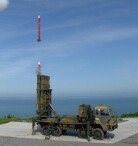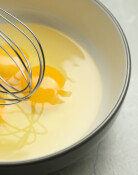Gov`t to cut tariffs on items to control inflation
Gov`t to cut tariffs on items to control inflation
Posted December. 08, 2010 11:17,
The government said Tuesday that it will encourage lower consumer prices by reducing tariffs on imported baby strollers, childrens wear and snacks in the first half of next year.
Other measures meant to control inflation to be taken this month include changes to the smartphone payment plan and a crackdown on false marking of the origin of goods.
The government announced measures to stabilize the prices of goods closely related to the people, including the above mentioned items. It has held five meetings on achieving price stability in the second half of this year and announced comprehensive measures Tuesday.
In the run-up to the announcement, the Korea Consumer Agency studied from September to last month the average consumer prices of 48 necessities in large cities of seven countries including the U.S., Japan, Germany and France. The study found that 18 items in Korea were more expensive than in other countries.
Beef (Korean) cost 61 percent more than the average of the seven countries. Tomatoes (50 percent more), pork bellies (27 percent), pizza (24 percent), beer (23 percent), garlic (20 percent) and TVs (18 percent) were also more expensive.
Among imports, the price of childrens wear was 32 percent higher than the average of the seven countries, baby strollers 30 percent more, and canned beer 23 percent higher. The consumer agency blamed the higher prices on tariffs (childrens wear and strollers), a limited distribution structure (cosmetics, strollers and snacks), productivity (meat and garlic), and consumer preference (pork belly).
Korea will lift the 8-percent tariff on strollers in the first half of next year. Those on childrens wear will be cut from 13 to 8 percent, snacks from 8 to 6 percent, garlic from 50 to 10 percent, and flour from 4.2 to 2.5 percent.
The lower tariffs will remain in effect through June next year instead of expiring at the end of this year as originally scheduled.
Accordingly, tariffs on cosmetics, detergents and vitamins (from 6.5 to 4 percent), sugar (35 to 0 percent), and tires (8 to 4 percent) will remain low.
For stable supply of agricultural and marine products next year, 100 billion won (88.3 million U.S. dollars) in additional budget will be allocated in addition to the 62 billion won (54.7 million dollars) originally earmarked.
The budget will be spent on expansion of the contracted volume of agricultural products and stock of marine products and strengthening agricultural observation.
The volume for contracted growing of vegetables such as white radish and napa cabbage will be raised. The supply of major marine products such as squid, mackerel and pollack will be increased from 0.5 percent to 1 percent.
With the recent spread of smartphones, the government will seek changes to the payment system. It will encourage mobile service providers to produce low payment plans for young adults and the elderly and a balanced payment plan for voice and data services.
For example, if a user with a monthly payment plan of 45,000 won (39.75 dollars) uses voice service beyond the limit but uses less than his or her share of data services, the voice service would not incur additional charges.
In addition, a price monitoring team of 745 housewives said more goods had their countries of origin falsely marked, prompting a crackdown on napa cabbage, beef and red pepper powder. The number of items subject to disclosure of price information will rise from 80 to 101.
Vice Strategy and Finance Minister Lim Jong-ryong said, The core of next years price policy will be management of high agricultural prices and inflation in service fees in the wake of economic recovery. We are doing our best to reduce the price of agricultural goods.
He said inflation will finish at 2.9 percent this year and stay in the 3-percent range next year.
lovesong@donga.com passion@donga.com







